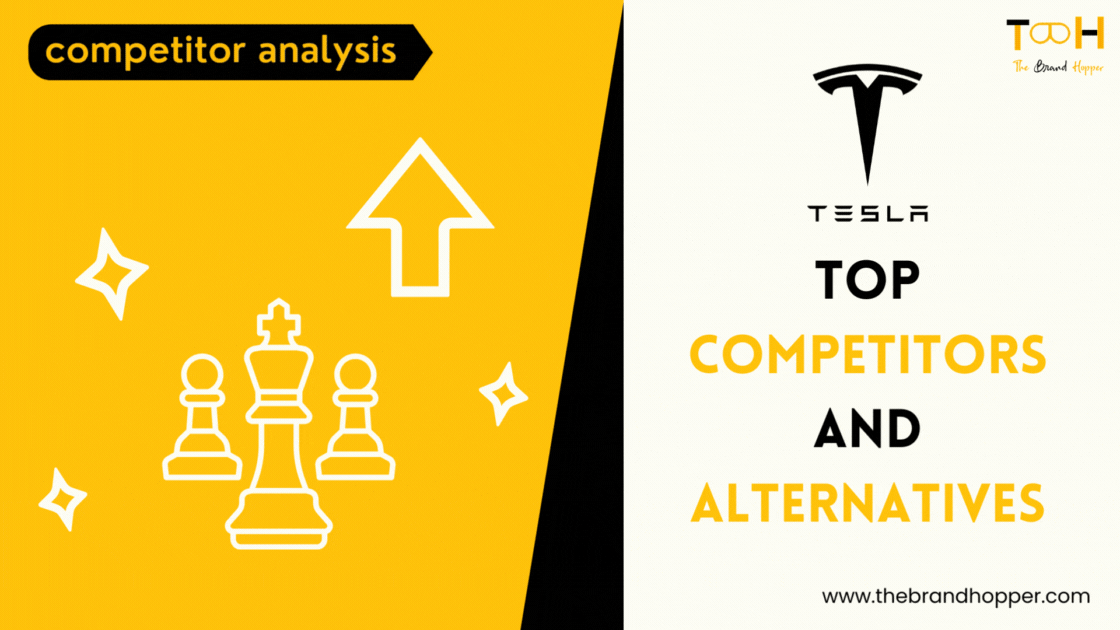Tesla, Inc. has become synonymous with electric vehicles (EVs) and sustainable transportation. Founded in 2003 by Martin Eberhard and Marc Tarpenning, the company initially focused on developing a premium electric sports car. Their vision, however, stretched far beyond luxury vehicles. They aimed to accelerate the world’s transition to electric mobility, reducing reliance on fossil fuels and their environmental impact.

Elon Musk, a visionary entrepreneur, joined Tesla in 2004 as a major investor and became CEO in 2008. Under his leadership, Tesla pursued an aggressive growth strategy, starting with the Roadster, an electric sports car with impressive range and performance. This initial offering not only garnered significant attention but also served as a critical first step in proving the viability of EVs.
Following the Roadster’s success, Tesla introduced a series of increasingly affordable and practical electric cars. The Model S sedan, launched in 2012, marked a turning point. It boasted a combination of luxury, performance, and long driving range, challenging perceptions of EVs as slow and utilitarian. The Model X SUV, introduced in 2015, further expanded Tesla’s lineup with its unique falcon-wing doors and focus on family transportation.
Tesla’s commitment to affordability came to fruition with the Model 3 sedan in 2017. This mass-market electric car aimed to make EVs accessible to a wider range of consumers. The Model Y crossover, launched in 2020, built upon this strategy, offering a spacious and practical option for the growing SUV segment. Tesla’s vision extends beyond passenger vehicles. They are committed to disrupting the commercial transportation sector with the Tesla Semi truck, designed for long-haul electric freight transportation, and the futuristic Cybertruck, an electric pickup truck targeting a new segment of the market.
Tesla’s impact goes beyond just electric cars. The company recognizes the importance of clean energy generation and storage. They offer a range of solar panels and battery storage products for homes and businesses, promoting a sustainable energy ecosystem that complements their electric vehicles.
Looking ahead, Tesla is constantly innovating. They are pushing the boundaries of battery technology to increase range and affordability. The company is also developing self-driving car technology, aiming to revolutionize transportation with autonomous vehicles.
Tesla’s journey has been marked by innovation, ambition, and some challenges. However, their unwavering commitment to accelerating the transition towards sustainable transportation has undeniably made them a driving force in the automotive industry.
Top Competitors and Alternatives of Tesla
Tesla, Inc. is a pioneer in the electric vehicle (EV) industry, known not only for its electric cars but also for its energy storage solutions and solar products. When exploring Tesla’s top competitors and alternatives, it’s important to consider companies operating in the electric vehicle market, renewable energy sector, and automotive industry. Here’s a detailed overview of Tesla’s top competitors and alternatives:
Traditional Automotive Companies with EV Initiatives:
1. Volkswagen Group
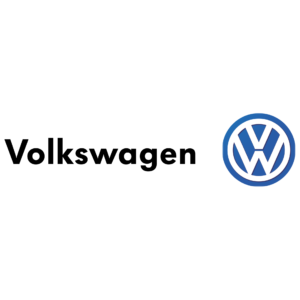
Website – https://www.volkswagen-group.com/en
Volkswagen Group (VW) is a major competitor to Tesla in the race towards electric vehicle (EV) dominance. Here’s how:
Market Share and Brand Recognition: VW boasts a rich history and established brands like Audi and Porsche. This translates to a loyal customer base and strong brand recognition, especially in Europe and China. While Tesla holds the US market share, VW is rapidly expanding its EV lineup across these key regions, posing a significant threat.
Production Capacity and Cost Advantage: VW leverages its vast manufacturing experience and existing infrastructure to produce EVs at a potentially lower cost than Tesla. This advantage allows them to offer competitive pricing, making EVs more accessible to a broader audience. Additionally, VW’s established dealership network offers a familiar service experience for traditional car buyers transitioning to EVs.
Rapid EV Development: VW is aggressively investing in EV technology and rolling out new models under its various brands. This diverse lineup caters to different customer segments, from luxury sedans (Porsche Taycan) to mass-market SUVs (VW ID.4). This strategic approach directly challenges Tesla’s dominance in both luxury and mainstream EV categories.
| Feature | Volkswagen Group | Tesla |
|---|---|---|
| Market Focus | Europe, China | Global (US Dominance) |
| Brand Strategy | Established Brands (Audi, Porsche, VW) | Single Brand |
| Production Advantage | Existing Infrastructure, Scalability | Gigafactories (Under Construction) |
| EV Strategy | Diverse Lineup (Luxury & Mass Market) | Focused Lineup (Luxury & Mid-Range) |
2. General Motors (GM)
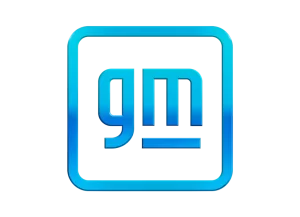
Website – https://www.gm.com/
General Motors (GM) is a strong contender against Tesla in the electric vehicle market. Here’s a breakdown of their competitive edge:
Legacy Automaker Advantage: GM boasts a long history of car manufacturing and a well-established dealer network. This translates to strong brand recognition among existing customers and the ability to leverage existing infrastructure for service and support. This established network eases the transition for gasoline car owners considering EVs, potentially swaying them towards familiar brands like Chevrolet or GMC.
Focus on Scale and Affordability: GM is heavily investing in battery production and manufacturing efficiencies to bring down EV costs. This focus on affordability allows them to target a broader consumer base than Tesla, which often positions itself in the premium segment. Additionally, GM’s diverse portfolio, including electric trucks like the Chevrolet Silverado EV, caters to specific market needs that Tesla hasn’t yet fully addressed.
Technological Advancements: GM is developing its own electric vehicle platform and investing heavily in autonomous driving technology. This commitment to in-house innovation allows them to potentially reduce reliance on external suppliers and differentiate their EVs with unique features. While Tesla has a head start in self-driving technology, GM’s advancements could close the gap in the coming years.
| Feature | General Motors | Tesla |
| Strength | Legacy Brand, Established Dealer Network |
Technology, Innovation
|
| Market Focus | Affordability, Broader Consumer Base |
Premium & Mid-Range Segment
|
| Production Strategy | Scalability, Cost Reduction |
Gigafactories, Vertical Integration
|
| EV Strategy | Diverse Portfolio (Trucks, SUVs) |
Focused Lineup (Sedans, SUVs)
|
3. Ford Motor Company
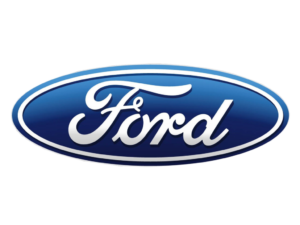
Website – https://www.ford.com/
Ford Motor Company is a Detroit giant rising to the challenge posed by Tesla in the electric vehicle arena. Here’s how Ford is making its mark:
Electrifying Legacy Vehicles: Ford isn’t abandoning its iconic models but electrifying them. The Mustang Mach-E, an electric version of the legendary muscle car, and the F-150 Lightning, an electric take on America’s best-selling truck, capitalize on brand loyalty and consumer familiarity. This strategy allows Ford to tap into existing customer bases enthusiastic about EVs with a familiar feel.
Manufacturing Expertise and Scalability: Ford leverages its extensive manufacturing experience to produce EVs efficiently. This established infrastructure allows them to potentially ramp up production faster than Tesla, which is still building its Gigafactories. Additionally, Ford’s existing dealer network provides a readily available sales and service infrastructure for EV customers, potentially easing the transition from gasoline vehicles.
Strategic Partnerships and Focus on Value: Ford collaborates with industry leaders like battery supplier CATL to ensure a steady supply chain and competitive pricing. This focus on value allows them to offer EVs at potentially more attractive price points compared to Tesla. This strategic approach caters to a broader market segment seeking a balance between affordability and cutting-edge technology.
| Feature | Ford Motor Company | Tesla |
| EV Strategy | Electrification of Legacy Vehicles |
Focused Lineup of New Models
|
| Manufacturing Strength | Established Infrastructure, Scalability |
Gigafactories (Under Construction)
|
| Competitive Advantage | Value Pricing, Existing Dealer Network |
Technology, Innovation
|
| Market Focus | Mainstream & Truck Enthusiasts |
Luxury & Mid-Range Segment
|
4. BMW Group
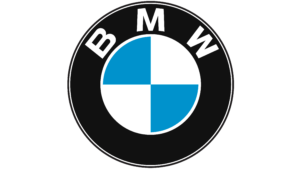
Website – https://www.bmwgroup.com/
The BMW Group is a formidable competitor for Tesla in the luxury electric vehicle (EV) market. Here’s how they’re vying for the top spot:
Luxury Performance Legacy: BMW boasts a strong reputation for high-performance vehicles and a focus on handling and driving dynamics. This established brand identity resonates with luxury car buyers who value a sporty and engaging driving experience. While Tesla offers impressive acceleration, BMW positions itself as the choice for those seeking a balance between power and driver engagement in the EV segment.
Focus on Premium Electric Vehicles: BMW offers a growing lineup of electric vehicles across various segments, directly competing with Tesla models. The BMW iX rivals the Tesla Model X in the SUV space, while the i4 takes aim at the Model 3 in the sedan category. This targeted approach ensures there’s a BMW option for those seeking a luxurious electric alternative to Tesla’s offerings.
Brand Recognition and Established Network: BMW benefits from a loyal customer base and a well-established network of dealerships across the globe. This network provides existing BMW owners with a familiar touchpoint for transitioning to EVs and offers potential customers a trusted environment for sales and service. Tesla, while rapidly expanding its network of stores and service centers, still lacks the depth of BMW’s established infrastructure.
| Feature | BMW Group | Tesla |
| Market Focus | Luxury Electric Vehicles |
Luxury & Mid-Range EVs
|
| Competitive Advantage | Performance Legacy, Brand Recognition |
Technology, Innovation
|
| EV Strategy | Targeted Lineup (Luxury Segments) |
Focused Lineup (Various Categories)
|
| Sales and Service | Established Dealer Network |
Tesla Stores & Service Centers
|
Electric Vehicle Startups:
1. Rivian

Website – https://rivian.com/
Rivian, a newcomer to the automotive scene, is carving a niche as a competitor to Tesla, particularly in the electric truck and SUV market. Here’s how:
Focus on Adventure-Ready EVs: Rivian concentrates on building electric trucks (R1T) and SUVs (R1S) with a focus on off-road capability and adventure driving. This unique selling proposition targets a specific customer segment different from Tesla’s current offerings, attracting those who prioritize utility and ruggedness alongside electric performance.
Innovation in Design and Functionality: Rivian’s vehicles boast innovative features like a gear tunnel for extra storage and a unique “camp kitchen” option. These features cater to outdoorsy lifestyles and differentiate Rivian from Tesla’s focus on minimalist design and technological prowess.
Strategic Partnerships and Potential Growth: Rivian has secured partnerships with giants like Amazon for delivery vans and Ford for joint development of electric vehicles. This collaboration strategy allows Rivian to leverage established expertise and potentially scale up production faster than going it alone. While Tesla remains the leader in overall production and brand recognition, Rivian’s strategic partnerships hold promise for future growth.
| Feature | Rivian | Tesla |
| Market Focus | Electric Trucks & SUVs (Adventure-Ready) |
Luxury & Mid-Range EVs (Sedans & SUVs)
|
| Competitive Advantage | Innovative Design & Functionality, Off-Road Capability |
Technology, Brand Recognition
|
| Production Strategy | Partnerships & Collaboration |
Gigafactories (Independent)
|
| Growth Potential | Partnerships & Emerging Markets |
Established Brand & Production Lead
|
2. Lucid Motors

Website – https://lucidmotors.com/
Lucid Motors, a rising star in the EV industry, positions itself as a direct competitor to Tesla, particularly in the luxury electric vehicle segment. Here’s how they aim to steal Tesla’s thunder:
Focus on Ultra-Luxury EVs: Lucid’s current offerings, the Air sedan and upcoming Gravity SUV, boast exceptional range, performance, and interior design, targeting the high-end market. This focus on luxurious electric vehicles directly rivals Tesla’s Model S and Model X, offering a potential alternative for discerning buyers seeking unparalleled comfort and technology.
Potential for Disruptive Battery Technology: Lucid claims to have in-house battery expertise, potentially leading to more efficient battery packs and longer range on a single charge. While Tesla is a leader in battery technology, Lucid’s advancements could disrupt the market if they translate to significant real-world advantages for their vehicles.
Emphasis on Customer Experience: Lucid prioritizes a personalized customer experience, offering a concierge service and focusing on building brand loyalty. This strategy aims to differentiate them from Tesla, which has sometimes faced criticism for its customer service approach.
| Feature | Lucid Motors | Tesla |
| Market Focus | Ultra-Luxury Electric Vehicles |
Luxury & Mid-Range EVs
|
| Competitive Advantage | Potential Battery Efficiency, Personalized Service |
Technology, Brand Recognition
|
| Product Strategy | High-End Sedans & SUVs |
Diverse Lineup (Sedans, SUVs, Trucks)
|
| Customer Experience | Concierge Approach, Building Loyalty |
Streamlined Online Sales
|
3. NIO
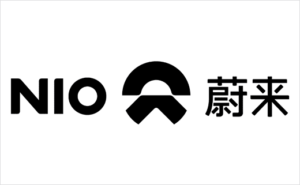
Website – https://www.nio.com/
NIO, a prominent Chinese electric vehicle manufacturer, is a growing competitor for Tesla, particularly in the premium electric car market. Here’s how NIO is vying for a slice of the EV pie:
Focus on Premium Smart EVs: NIO offers high-performance electric vehicles with advanced technology features and a focus on user experience. This approach caters to a similar customer base as Tesla, targeting those who value cutting-edge design, infotainment systems, and driver-assistance features. NIO’s focus on a premium segment positions them directly against Tesla’s Model 3 and Model S.
Innovative Battery-as-a-Service (BaaS): NIO stands out with its innovative BaaS model, allowing users to separate battery purchase from the car’s upfront cost and swap depleted batteries for full ones at designated stations. This addresses range anxiety, a common concern for EV owners, and offers a potential convenience advantage over Tesla’s traditional charging model.
Established Presence in China: NIO has a strong foothold in the world’s largest car market, China. This local presence allows them to leverage government incentives, cater to specific customer preferences, and build brand recognition within a rapidly growing EV market. While Tesla is also expanding in China, NIO’s established network gives them a head start in this crucial region.
| Feature | NIO | Tesla |
| Market Focus | Premium Smart Electric Vehicles |
Luxury & Mid-Range EVs
|
| Competitive Advantage | Battery-as-a-Service Model |
Technology, Brand Recognition
|
| Production Strategy | Focus on China Market |
Global Production & Sales
|
| Charging Solution | Battery Swapping Stations |
Supercharger Network & At-Home Charging
|
Energy Storage and Solar Companies:
1. LG Chem
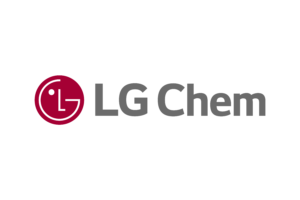
Website – https://www.lgchem.com/
While LG Chem might seem like a straightforward supplier to Tesla due to their battery production partnership, their relationship goes deeper. Here’s how LG Chem acts as both a collaborator and a competitor to Tesla:
Dominant Battery Supplier: LG Chem is a major supplier of lithium-ion batteries to Tesla, powering a significant portion of their electric vehicles. This partnership allows Tesla to focus on car design and technology while relying on LG Chem’s expertise in battery production. However, this dependence also creates a vulnerability for Tesla, as LG Chem’s production capacity and pricing can directly impact Tesla’s vehicle production and cost.
Innovation in Battery Technology: Both LG Chem and Tesla are constantly pushing the boundaries of battery technology. LG Chem invests heavily in research and development, aiming to create more efficient batteries with longer range and faster charging times. These advancements benefit Tesla as they receive access to cutting-edge batteries, but they also benefit LG Chem, who can sell these batteries to other car manufacturers as well.
Potential for In-House Battery Production: Tesla has shown interest in developing its own battery production capabilities, potentially reducing reliance on LG Chem. This strategy could give Tesla more control over battery costs and technology, but it would require significant investment and time to establish their own large-scale battery production facilities.
| Feature | LG Chem | Tesla |
| Business Relationship | Battery Supplier to Tesla |
Collaborator & Potential Competitor
|
| Competitive Advantage | Battery Production Expertise |
Electric Vehicle Design & Technology
|
| Battery Strategy | Focus on Innovation & Sales to Multiple Carmakers |
Potential Shift to In-House Production
|
| Control | Influence over Tesla’s Battery Costs |
Potential for Independent Battery Production
|
2. Sunrun

Website – https://www.sunrun.com/
While Tesla offers solar panels and batteries, Sunrun is a dedicated solar energy company that acts as a significant competitor in the home solar market. Here’s how Sunrun challenges Tesla’s dominance:
Focus on Solar Installation and Financing: Sunrun specializes in designing, installing, and financing solar panel systems for homes. This focus allows them to provide a comprehensive solar solution, potentially simplifying the process for homeowners compared to Tesla’s separate offerings for panels, batteries, and installation. Additionally, Sunrun offers various financing options like solar loans and leases, catering to a wider range of budgets.
Established Network and Customer Service: Sunrun boasts a large network of experienced installers across the US. This established presence allows for faster project completion and potentially better customer service compared to Tesla, which may have limited installer availability in some regions. Sunrun also prioritizes customer service, focusing on personalized consultations and post-installation support.
Focus on Long-Term Value and Flexibility: Sunrun positions itself as a long-term partner for homeowners’ solar needs. They offer extended warranties and monitoring services, ensuring system efficiency and addressing potential issues. Furthermore, Sunrun allows for system upgrades and adjustments over time, catering to changing energy needs. Tesla’s offerings might be more focused on upfront cost, potentially overlooking the long-term value proposition that Sunrun emphasizes.
| Feature | Sunrun | Tesla |
| Business Focus | Dedicated Solar Energy Company |
Electric Vehicles & Solar (Secondary)
|
| Competitive Advantage | Comprehensive Solar Solutions & Financing |
Technology & Brand Recognition
|
| Sales Strategy | Installation & Financing Network |
Direct Sales & Online Focus
|
| Customer Experience | Personalized Service & Long-Term Support |
Streamlined Online Sales Process
|
These competitors and alternatives represent the diverse landscape of companies challenging Tesla in electric vehicles, renewable energy, and related technologies. The competition in these sectors is expected to intensify as more companies invest in sustainable mobility and renewable energy solutions.
Also Read: Top 9 Competitors of Porsche : A Comprehensive Overview
To read more content like this, subscribe to our newsletter

